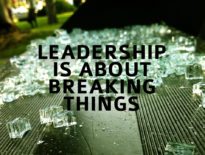
I was peppered with this question six ways to Sunday recently and honestly, I couldn’t help but wonder if the public attention on Trump and Elon Musk’s tweets, haven’t had something to do with everyone asking how (or really why) these people in presumably busy and important roles, manage the time to bother tweeting.
In my work in Austin, and through MediaTech Ventures, the timing to explore such a question couldn’t be more apropos… Founder Institute Austin is starting its 3rd cohort and in our curriculum to foster ensuring founders, knowing how and why CEOs invest in having a voice in public is pertinent to our start of the next class.
How do top startup CEOs and VCs find time to Tweet so much?
Believe it or not, because it’s essentially part of their job.
3 key people in a company create the value:
- CEO
- CMO
- CTO (or the like)
That’s not saying other roles don’t provide value. The other roles exist BECAUSE the business has created value that needs to be served.
A CFO where there is no business isn’t needed 🙂
Those three areas of focus in an early company are fundamental.
Economist Peter Drucker noted decades ago that only two things create value in business: innovation and marketing.
Innovation is one way in which business offer something of distinct value AND a manner in which they create competitive advantage.
Coca-Cola, for example, so you’re not just thinking technology companies, was innovative when it was created – because it was desired: business!
Marketing is the work of the market. It’s not advertising and promotion, most misunderstand that. Marketing is the work of knowing the customer, competitors, investors, etc. in order to figure out what value to provide.
Today, Coca-Cola is still tremendously valued but not because of innovation; now, it’s entirely a Marketing valued product. Hence the heavy investment in branding and commercials.
Most companies fail to do one or the other (or both); and such companies inevitably fail. Most businesses treat marketing as the after thought (getting customers or leads), when it should be the forethought. It tells the business what to do.
Consider that a business with no market doesn’t exist. Right? And a business that isn’t innovative, but has market, can be tremendously successful!
(Think, real estate or grocery stores)
But that balance of those two facets of value creation doesn’t really work the other way around: An innovation without a market isn’t a business. It’s just an invention; and inventions occur all the time that don’t go anywhere. This is why/how Universities, particularly those that expect to retain ownership of students’ IP and/or commercialized inventions, tend not to actually produce much of those things in the form of massive companies. No market = no business.
(Yes, many University innovations bring value to the world, of course! But note that our most valued companies are NOT based on University IP… that system stifles market development. And that stifles value.)
But we’re way off track aren’t we? What does this have to do with the CEO or VC??
Isn’t it the CEO’s job to tell the business what to do??
Absolutely not. That’d be the dumbest thing for a business to do… leave all the important decisions not to the leadership experienced with those things but the single Chief?!?
The CEOs most important job is to bring resources so everyone else can do their job.
No resources, no business.
The CMO’s job (marketing) in studying and developing the market for the business, is NOT to Tweet. Rarely does anyway care to follow the CMO.
Marketing’s job is to tell the business what to do. The CMO would tell the business HOW and WHY to tweet.
And in the CEO’s responsibility to bring resources, tweeting makes a ton of sense. So does blogging. Writing a book. Doing TV interviews. Speaking at events. etc.
Consider what we mean by resources… the CEO should be most importantly making sure everyone in the company has:
- Capital
- Experienced human resources
- Skilled human resources
- Passionate human resources
- Vision
- Roadmap
- Attention (public attention)
- Partners
- Customers
Disagree?
The “CEO” is the personal typically most capable of bringing those to the company.
But wait Paul… the CEO of Coca-Cola doesn’t really tweet, do they??? (Actually, I have no idea; because, who cares?). Coca-Cola is established so that product is now at a late stage: market driven business. We don’t care what the CEO thinks, we want a Coke, and people want to work there.
Thus, Marketing has determined and told Coca-Cola that it isn’t worth doing that (the CEO tweeting); do other things like sponsor the Olympics and make sure McDonald’s has larger sized cups and straws — keeping Coca-Cola top of mind and consumers involved in consuming more.
Just as the CEO should NOT be doing the marketing, you’d not expect them to lead the work on finances, or coding, or dealing with supply chain, because there are experienced and skilled people far more capable of doing those things.
You see tweeting isn’t Marketing. Tweeting is promotion, engagement, and accessibility.
What does the public want? What do investors want? What does the press want? What creates a company where people want to work?
Tweeting is a valuable use of a CEO’s time as it accomplishes those things and more.
VCs, by the way, since that was the proposed topic, are actually more like CEOs than anything. They aren’t Angel Investors, they manage others’ money. So their job is to bring the same resources (capital) to their company (the fund) so they can work with those resources. They, as a CEO does, they have to make some of the most substantial decisions – such as evaluating a $10,000,000 business opportunity.
See: What is the difference between private equity, angel investors, and venture capitalists?
If you don’t understand that or agree, sit down with your team and look again at what isn’t working well in your startup. Is the CEO doing work that someone with that experience should be doing?? Is the CEO in the role of dictating to leaders better suited, experienced, and dare I say even smarter, in their respective fields, what they should be doing?? Are you treating twitter, or facebook, or blogging, or speaking at events as something that Marketing specialist should do or are you all appreciating that the PERSON that people want to connect with is that founder and executive?
The Commander-in-Chief of the United States (whether you favored Obama OR Trump), is evidence of this … do you really think they spend time Tweeting because of their craving for attention?? Or is the very nature of the question asked, “How do top startup CEOs and VCs find time to Tweet so much?” not some evidence of the answer within the question… they’re in the TOP companies because they appreciate that their job is to drive that attention.
You really think Elon Musk tweets so much just so he can get the attention of the SEC??
Now, HOW do they find the time?
When you appreciate that Marketing is not Advertising, and that social media is not merely pushing out messages, you can start to wrap your hands around the fact that there are best practices, processes, tools, and platforms purpose-built to make it easy for people to keep up. My own peers often ask how I keep on top of Austin Startup news so frequently – the answer is absolutely NOT that I sit on Facebook and Twitter, but that I have alerts and tools that keep me promptly informed of developments.
One simple step : Set up Twitter Lists
Build in your twitter profiles lists for what you deem important. A quick look at these lists, in the morning or throughout the day, and you get a brief of popular topics in those fields. I’ve set up lists related to…
- Friends – Personal friends, they are going to talk about everything and you care to pay attention because you really do… care
- Family – Sure, your mom might not yet tweet but your cousins, siblings, and kids do. Keep in touch.
- Coworkers – A blend of friend and family (be honest, with whom do you spend more time?) your coworkers are your comrades in arms. Help each other out and pay attention to where they are having lunch.
- Partners – This a little “friends close and enemies closer” situation as well as an opportunity for synergy. When your partners scratch your back, make sure you scratch back.
- Industry peers – Are you in FinTech, Commercial Real Estate, MediaTech, or farming? Who are the influencers and mavens that keep you on your toes?
- Competitors – Admit it, we all know you’re keeping tabs (want to hide who you’re watching? You can set up your Twitter List as private).
- Local news – Print and TV news, is it really dead? Not remotely. A Twitter List of your local news stations and reporters helps you keep tabs on what’s going on in your neck of the woods. Right now.
- Areas of interest – Sports, knitting, Star Wars, Lord of the Dance. You know you better than I do so there isn’t much I can do to help you identify what you like. Good luck.
- Industry news – I keep this list separate from Industry Peers; following Michael Arrington is different from following TechCrunch. As an eBay or Shopify platform, you follow Marsha Collier and @ebayfans because you they’re in the industry.
- Jobs – Just a suggestion. You never know. Follow the job boards and recruiters for your industry and they’ll litter your twitter stream so much you’ll think the recession is over. Not that you’re looking, but we all know what you do when corporate bureaucracy pisses you off…. you can browse job boards or just pull up your Twitter List and sit back watch what you could be doing instead.
Notice, none of that has anything to do with Enterprise Listening Social Data Platforms, Hootsuite, or other sophisticated tools that ARE VALUABLE. Those are valuable to your Marketing team. All you need is the Twitter app and some Lists and Alerts.
Second Consideration: an effective content strategy that starts with a foundation and syndicates content to other channels
As a company, you’re not just tweeting to tweet. And more importantly, you shouldn’t be using social media merely to build audiences and create engagement, THERE. Work with your MarCom team to develop HOW the content your company, and that you, develop, compounds upon itself. You want to learn from engagement, drive traffic, and establish market share, not just sell.
There are many ways to develop that strategy but a great place to start is in appreciating that “blogging” isn’t about getting customers. I can’t count how many times I’ve heard business owners, executives, and startups mention that they, ‘tried blogging but didn’t get anything from it.’
The blog, the content on a site (your company site or perhaps your own site) is a foundation. It’s one of many possible foundations for the content you create as an executive but it’s upon that foundation that you then consider HOW, WHERE, WHEN, and WHAT to repurpose, share, and syndicate elsewhere.
Appreciate how that scales? … a blog post can get repurposed as a tweet. Likely 10 tweets. More though, it can be reworked to answer questions on Quora, as a personal perspective on LinkedIn, syndicated to Medium, posted in a dozen Facebook Groups, shared as an image on Instagram, transformed into a white paper you promote for download, expounded upon as a book, or as a draft of your speaking proposal (and talking points) at a conference.
THAT’S WHY, and a bit of how, we’re on social media so prolifically. Stop tweeting expecting that people will simply follow you because you’re sharing company news. Appreciate instead that you have a megaphone, freely available and globally reaching – put it to use!





It’s the first time I have heard something reasonable from a VC. Congratulations. There is hope in this world.
Well thought-out and well-articulated response that echo some of my own thoughts.
I always thought social media seemed to come naturally from you, so I wouldn’t expect it from another department.
The job of the business guy in a technical early stage company is to “socialize” his company and his company’s technology.
…despite the FACT that it is largely ignored by the “technology” community.
The quotation marks are purposeful. I continue to believe that if you are software, cyber, coding, data or biotech, you’re outside of the defined “ecosystem.”
Great Article.